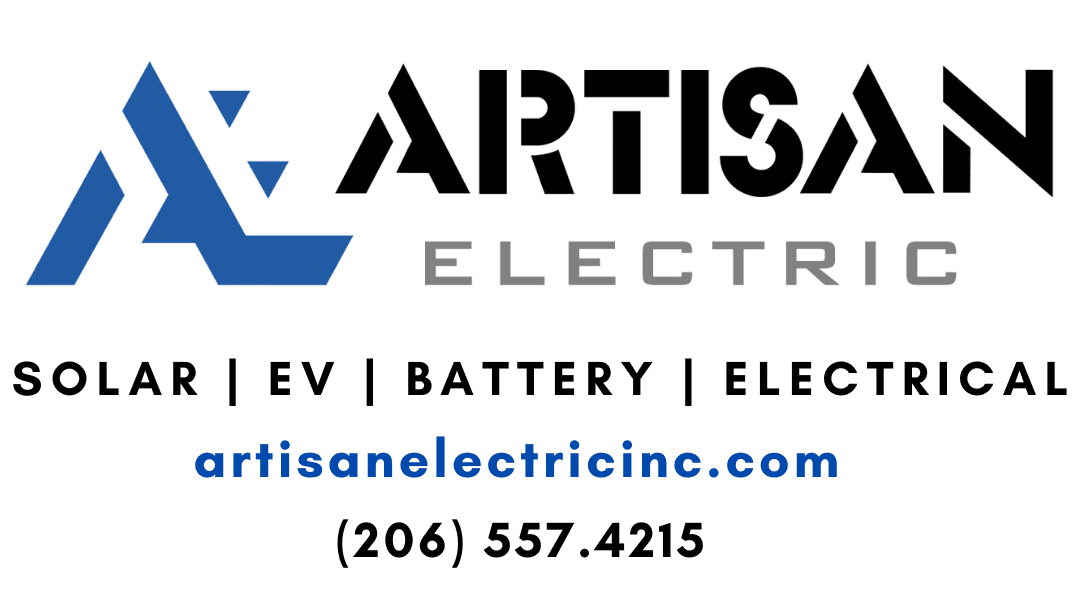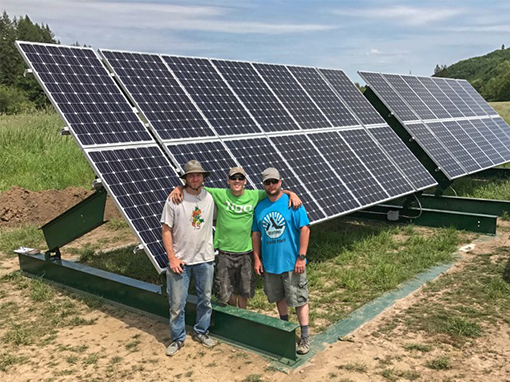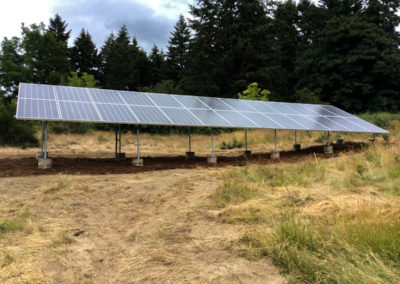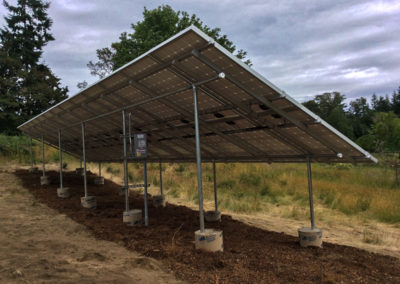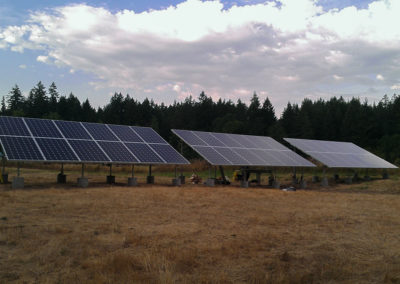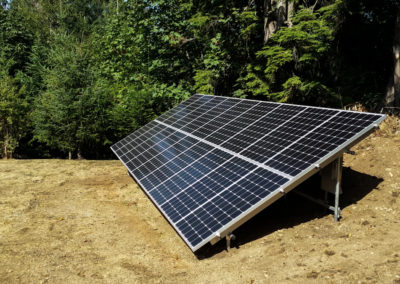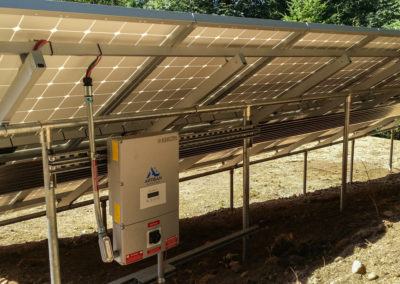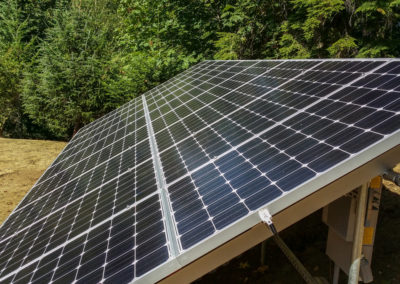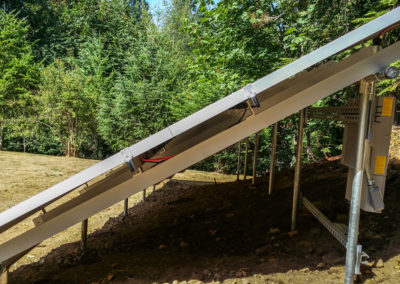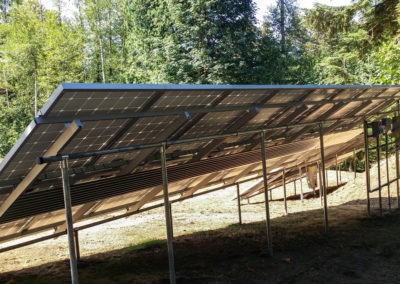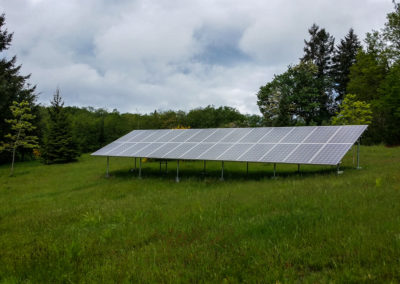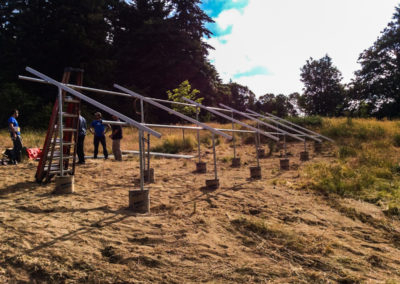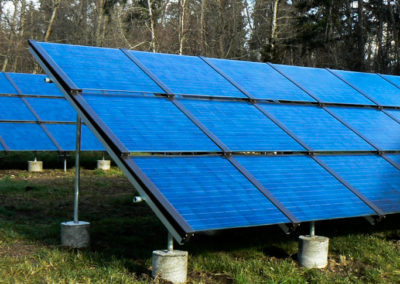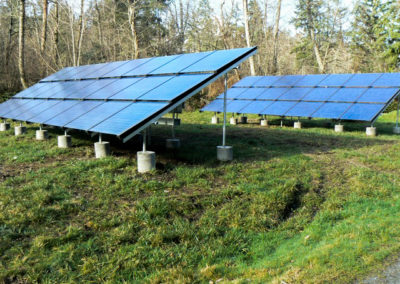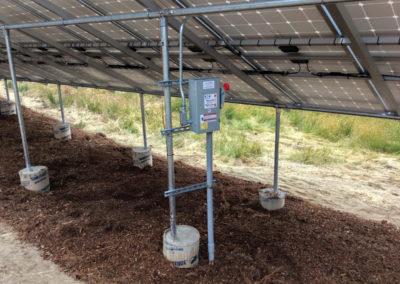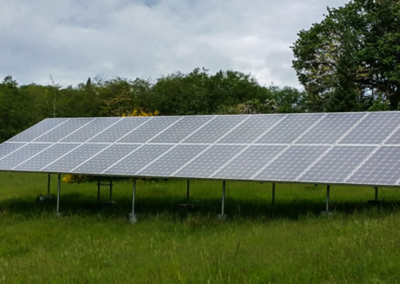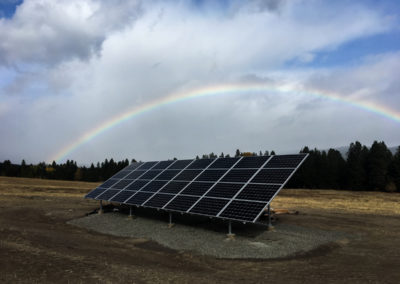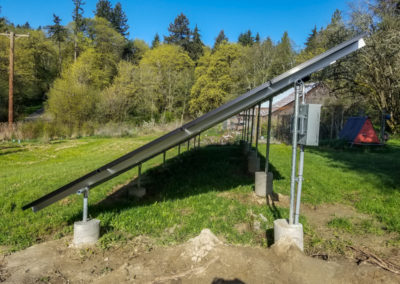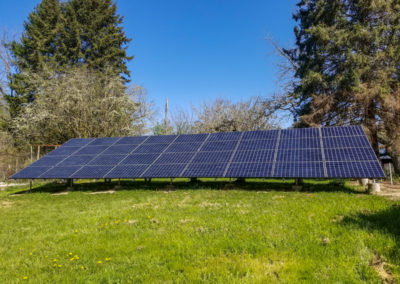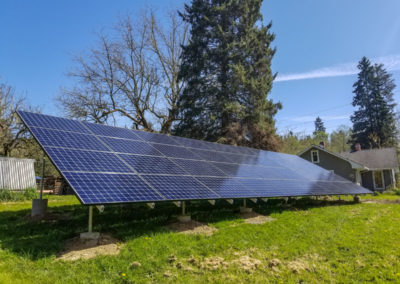Can I Put Solar Panels in My Yard?
Yes, you can put solar panels in your yard. Ground-mounted solar panels are a great option if your roof isn’t suitable. They can be installed in various configurations, offering flexibility in positioning to maximize sunlight exposure.
Before proceeding, check local zoning laws and HOA rules to ensure compliance. Also, consider potential shading from trees or buildings that might affect efficiency. Ground installations often allow for easier maintenance and cooling, which can improve performance.
Consult with a solar professional to determine the best layout and placement for your yard.
Putting Solar Panels in the Yard Instead of the Roof
Installing solar panels in your yard instead of on your roof offers several advantages. Ground-mounted systems can be positioned at the optimal angle to capture the most sunlight. This flexibility isn’t always possible with roof installations due to roof orientation or shading.
Yard installations can also be scaled more easily. If you have ample space, you can add more panels over time to increase your energy production. Maintenance is typically simpler as well, since you can access the panels without climbing onto the roof.
However, yard installations do require a significant amount of space and might have higher initial costs due to the need for additional mounting structures. Weigh these factors to determine if a ground-mounted system is right for you.
What Are the Benefits of Ground-Mounted Solar Arrays?
Perhaps you don’t like the look of them on your house, or your roof is positioned in the trees, or maybe the direction and pitch of your roof is not ideal for solar.
Regardless of why you can’t or don’t want to install solar on your roof, ground-mounted solar panels are a great alternative! Ground-mounted solar panels can be installed anywhere on your property — including the front, side, or backyard — whereas rooftop-mounted panels must be attached to your roof.
Costs: Ground-mounted panels often cost more than roof mounted systems because they require additional materials, time, and labor. Artisan Electric generally uses a cement foundation or reinforced pole structure to ensure the panels are propped up off the ground, tilted at the proper angle, and then wired to your home, all of which ends up being a slightly more involved and pricier than installing on your roof.
Benefits: If you have a large demand for electricity, ground-mounted arrays can be ideally oriented to the direction and angle of maximum energy production. This way, you can produce more electricity than a pre-determined roof not ideally designed for solar. The increased cost of the ground-mounted solar array is offset by the high efficiency of the array.
Space: If you have a large yard or a lot of space, you can install a much bigger ground-mounted system than you could with a rooftop-mounted system, giving you the opportunity to generate more energy and save on your utility bill. However, a large ground-mounted system will consume more of your land, leaving you less space for recreation or gardening.
Aesthetics: Ground-mounted solar panels typically sit between a few inches and several feet above the ground, depending on your location and the mounting system. If you have a small yard and a bulky array, the panels may stand out more than they would on a rooftop. This can be a significant deterrent to homes with manicured lawns and landscaped gardens.
Cleaning and Maintenance: While solar panels don’t require much maintenance, you may need to clean or repair them at some point. As ground-mounted panels are closer to the ground, they are easier to clean and maintain than those on a roof. The only extra effort a ground-mounted array owner will need to invest is to keep the base of the panels clear during cold and snowy weather, as new snow on the panels can only slide off if the area below is clear.
What Are the Benefits of Roof-Mounted Solar Arrays?
Roofs are the easiest and best use of space for solar panels. It tends to be space that is not otherwise used on your home. Roofs are positioned high in the air, which gives them better chances to be in sunlight. In many cases, they are already angled toward the sun.
Costs: Rooftop-mounted panels are more common, and they’re usually easier and faster to install. The only thing that might increase those costs significantly is the condition of your roof. Rooftop-mounted panels require a steady, well-maintained roof that is expected to last at least 20 years.
If your roof is more than 10 years old, you will likely have to replace it during the solar array’s lifetime. Uninstalling and reinstalling solar panels is complicated, time-consuming, and expensive, so you may want to replace the roof before installing your panels, which will increase overall costs.
Space: With rooftop-mounted panels, you’re much more limited in how large of a system you can install. Because you likely don’t spend a lot of time on your roof, a rooftop-mounted system will preserve your land’s usable space.
Aesthetics: Rooftop-mounted systems are generally less noticeable, though it does depend on the positioning of your home. If the front of your home faces south, the panels will be very visible. If your home faces north, on the other hand, you can hide the solar panels better by placing them on the backside of your roof.
There’s no one right choice when it comes to deciding between ground-mounted and rooftop-mounted solar panels. Both solutions offer benefits, and the best arrangement ultimately depends on your property and preferences.
Should I Put Solar Panels on My House?
Deciding whether to put solar panels on your house depends on several factors. Roof-mounted systems are often more space-efficient and can take advantage of unused roof space. They can blend into the home’s design, preserving your yard’s aesthetic and usable area.
Consider your roof’s condition and orientation. A south-facing roof with minimal shading is ideal for maximum energy production. The age and strength of your roof are also important; installing solar panels on a roof that needs replacement soon isn’t advisable.
Roof installations can be less expensive than ground-mounted systems because they don’t require additional support structures. Consult with a solar professional to evaluate your roof’s suitability and to get a tailored assessment of potential energy savings.
Solar Panels in Front of the House
Installing solar panels on the front of your house can be a great option if that’s where you receive the most sunlight. This approach can maximize energy production, especially if the front of your house faces south or southwest.
However, aesthetics might be a concern. Solar panels on the front of the house are more visible and could impact the curb appeal. Fortunately, modern solar panels come in sleek designs that blend better with your roof.
Before proceeding, check local regulations and any homeowner association rules. Some areas have guidelines about the visibility of solar installations. Ultimately, while front-of-house installations can be highly effective, balancing energy needs with aesthetic preferences is key.
How to Hide Solar Panels?
If you’re concerned about the visual impact of solar panels, there are several ways to hide them. One option is to use low-profile or all-black panels that blend better with your roof. These panels have a sleeker look and can be less noticeable from the street.
Another strategy is to install panels on less visible parts of your property, like the back of your house or on ground mounts in your yard with landscaping to shield them. For ground-mounted systems, you can use fences, trellises, or strategic planting to obscure the panels from view.
BIPV (Building-Integrated Photovoltaics) is another solution. These systems integrate solar cells into building materials, like roof tiles or facade elements, making them nearly invisible.
Consult with your solar installer about these options to find the best way to maintain your property’s aesthetics while enjoying the benefits of solar energy.
Final words
Evaluate Your Solar Options, Including Ground-Mounted Solar Arrays
Let Artisan Electric help you evaluate your solar options. We can assess your property and provide a recommendation as to whether or not solar is a good choice for your home.
A smarter energy solution is closer than you think. Take the first step today.
